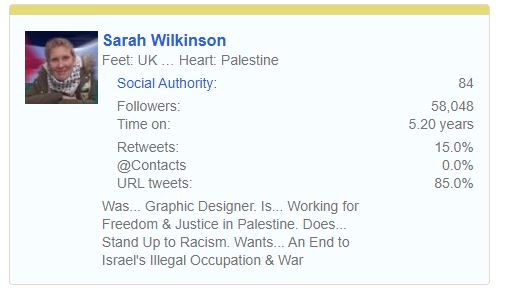Alice & Wonderland.
List out all who have foundations.
Why is this relevant?
How can donations be used personally?
Analyze the filings.
Who is charged w/ overseeing this?
IRS?
Corrupt?
Politically motivated?
Alice & Wonderland.
Ireland: Central Bank and Financial Services Authority of Ireland
Israel: Bank of Israel
Italy: Bank of Italy
Jamaica: Bank of Jamaica
Japan: Bank of Japan
Jordan: Central Bank of Jordan
Kazakhstan: National Bank of Kazakhstan
Korea: Bank of Korea
Kuwait: Central Bank of Kuwait
Kyrgyzstan: National Bank of the Kyrgyz Republic
Latvia: Bank of Latvia
Lebanon: Central Bank of Lebanon
Lesotho: Central Bank of Lesotho
Libya: Central Bank of Libya (Their most recent conquest)
Lithuania: Bank of Lithuania
Luxembourg: Central Bank of Luxembourg
Macao: Monetary Authority of Macao
Macedonia: National Bank of the Republic of Macedonia
Madagascar: Central Bank of Madagascar
Malawi: Reserve Bank of Malawi
Mali: Central Bank of West African States (BCEAO)
Malta: Central Bank of Malta
Mauritius: Bank of Mauritius
Mexico: Bank of Mexico
Moldova: National Bank of Moldova
Mongolia: Bank of Mongolia
Montenegro: Central Bank of Montenegro
Mozambique: Bank of Mozambique
Namibia: Bank of Namibia
Nepal: Central Bank of Nepal
Netherlands: Netherlands Bank
Netherlands Antilles: Bank of the Netherlands Antilles
New Zealand: Reserve Bank of New Zealand
Nicaragua: Central Bank of Nicaragua
Nigeria: Central Bank of Nigeria
Norway: Central Bank of Norway
Oman: Central Bank of Oman
Pakistan: State Bank of Pakistan
More from Day1JTrumpet
.
https://t.co/vPc5zorpri
[Hassan Rouhani]
Who paid HUSSEIN to attend HARVARD LAW SCHOOL?
Who is Prince Alwaleed bin Talal?
Why would Prince Alwaleed bin Talal (Saudi Royal) pay HUSSEIN to attend HARVARD LAW SCHOOL?
Was HUSSEIN a prominent political figure or a person of influence at the time?
No.
Who is Valerie Jarrett?
Where was she born?
When did Valerie Jarrett hire Michelle Robinson?
1991
Timeline.
https://t.co/EGtNETENBg
Who is Mayor (former) Richard Daley?
Who is Mayor (current) Rahm Emanuel?
HUSSEIN should be VERY nervous.
BRENNAN should be VERY nervous.
KERRY should be VERY nervous.
MERKEL should be VERY nervous.
+29
How were the pallets of cash divided?
How many planes were used to transport?
Who operated the planes?
What 'shadow' agency directed operations?
Why wasn't the money [simply] wire transferred?
US had AUTH to open bank-to-bank transfers.
How do you prevent financial T logs?
How were the cash withdrawals in EU categorized/labeled?
Where did the cash originate from?
As part of a food service element, approximately 30 members of the D.C. National Guard ensure that 18,000 catered meals are unpacked, sorted, distributed and served to National Guard Soldiers and Airmen in Washington, D.C., Jan. 11, 2021. pic.twitter.com/bDR7Nb6l81
— District of Columbia National Guard (@DCGuard1802) January 14, 2021
https://t.co/vPc5zorpri
[Hassan Rouhani]
Who paid HUSSEIN to attend HARVARD LAW SCHOOL?
Who is Prince Alwaleed bin Talal?
Why would Prince Alwaleed bin Talal (Saudi Royal) pay HUSSEIN to attend HARVARD LAW SCHOOL?
Was HUSSEIN a prominent political figure or a person of influence at the time?
No.
Who is Valerie Jarrett?
Where was she born?
When did Valerie Jarrett hire Michelle Robinson?
1991
Timeline.
https://t.co/EGtNETENBg
Who is Mayor (former) Richard Daley?
Who is Mayor (current) Rahm Emanuel?
HUSSEIN should be VERY nervous.
BRENNAN should be VERY nervous.
KERRY should be VERY nervous.
MERKEL should be VERY nervous.
+29
How were the pallets of cash divided?
How many planes were used to transport?
Who operated the planes?
What 'shadow' agency directed operations?
Why wasn't the money [simply] wire transferred?
US had AUTH to open bank-to-bank transfers.
How do you prevent financial T logs?
How were the cash withdrawals in EU categorized/labeled?
Where did the cash originate from?
More from Society
So, as the #MegaMillions jackpot reaches a record $1.6B and #Powerball reaches $620M, here's my advice about how to spend the money in a way that will truly set you, your children and their kids up for life.
Ready?
Create a private foundation and give it all away. 1/
Let's stipulate first that lottery winners often have a hard time. Being publicly identified makes you a target for "friends" and "family" who want your money, as well as for non-family grifters and con men. 2/
The stress can be damaging, even deadly, and Uncle Sam takes his huge cut. Plus, having a big pool of disposable income can be irresistible to people not accustomed to managing wealth. https://t.co/fiHsuJyZwz 3/
Meanwhile, the private foundation is as close as we come to Downton Abbey and the landed aristocracy in this country. It's a largely untaxed pot of money that grows significantly over time, and those who control them tend to entrench their own privileges and those of their kin. 4
Here's how it works for a big lotto winner:
1. Win the prize.
2. Announce that you are donating it to the YOUR NAME HERE Family Foundation.
3. Receive massive plaudits in the press. You will be a folk hero for this decision.
4. Appoint only trusted friends/family to board. 5/
Ready?
Create a private foundation and give it all away. 1/
Let's stipulate first that lottery winners often have a hard time. Being publicly identified makes you a target for "friends" and "family" who want your money, as well as for non-family grifters and con men. 2/
The stress can be damaging, even deadly, and Uncle Sam takes his huge cut. Plus, having a big pool of disposable income can be irresistible to people not accustomed to managing wealth. https://t.co/fiHsuJyZwz 3/
Meanwhile, the private foundation is as close as we come to Downton Abbey and the landed aristocracy in this country. It's a largely untaxed pot of money that grows significantly over time, and those who control them tend to entrench their own privileges and those of their kin. 4
Here's how it works for a big lotto winner:
1. Win the prize.
2. Announce that you are donating it to the YOUR NAME HERE Family Foundation.
3. Receive massive plaudits in the press. You will be a folk hero for this decision.
4. Appoint only trusted friends/family to board. 5/
A long thread on how an obsessive & violent antisemite & Holocaust denier has been embraced by the international “community of the good.”
Sarah Wilkinson has a history of Holocaust denial & anti-Jewish hatred dating back (in documented examples) to around 2015.

She is a self-proclaimed British activist for “Palestinian rights” but is more accurately a far Left neo-Nazi. Her son shares the same characteristics of violence, racism & Holocaust denial.
I first documented Sarah Wilkinson’s Holocaust denial back in July 2016. I believe I was the 1st person to do so.
Since then she has produced a long trail of written hate and abuse. See here for a good summary.
Wilkinson has recently been publicly celebrated by @XRebellionUK over her latest violent action against a Jewish owned business. Despite many people calling XR’s attention to her history, XR have chosen to remain in alliance with this neo-Nazi.
Former Labour Shadow Chancellor John McDonnell MP is among those who also chose to stand with Wilkinson via a tweet.
But McDonnell is not alone.
Neo-Nazi Sarah Wilkinson is supported and encouraged by thousands of those on the Left who consider themselves “anti-racists”.
Sarah Wilkinson has a history of Holocaust denial & anti-Jewish hatred dating back (in documented examples) to around 2015.

She is a self-proclaimed British activist for “Palestinian rights” but is more accurately a far Left neo-Nazi. Her son shares the same characteristics of violence, racism & Holocaust denial.
I first documented Sarah Wilkinson’s Holocaust denial back in July 2016. I believe I was the 1st person to do so.
Since then she has produced a long trail of written hate and abuse. See here for a good summary.
The internet is forever. https://t.co/zxBV7rjskB
— Heidi Bachram (@HeidiBachram) February 2, 2021
Wilkinson has recently been publicly celebrated by @XRebellionUK over her latest violent action against a Jewish owned business. Despite many people calling XR’s attention to her history, XR have chosen to remain in alliance with this neo-Nazi.
Former Labour Shadow Chancellor John McDonnell MP is among those who also chose to stand with Wilkinson via a tweet.
But McDonnell is not alone.
Neo-Nazi Sarah Wilkinson is supported and encouraged by thousands of those on the Left who consider themselves “anti-racists”.
Imagine if Christians actually had to live according to their Bibles.
Imagine if Christians actually sacrificed themselves for the good of those they considered their enemies, with no thought of any recompense or reward, but only to honor the essential humanity of all people.
Imagine if Christians sold all their possessions and gave it to the poor.
Imagine if they relentlessly stood up for the widow, the orphan, and the foreigner.
Imagine if they worshipped a God whose response to political power was to reject it.
Or cancelled all debt owed them?
Imagine if the primary orientation of Christians was what others needed, not what they deserved.
Imagine Christians with no interest in protecting what they had.
Imagine Christians who made room for other beliefs, and honored the truths they found there.
Imagine Christians who saved their forgiveness and mercy for others, rather than saving it for themselves.
Whose empathy went first to the abused, not the abuser.
Who didn't see tax as theft; who didn't need to control distribution of public good to the deserving.
"If they start canceling these American presidents, they're gonna come after Bible characters next. Mark my words" -- Fox News "news side" host Bill Hemmer pic.twitter.com/qTPV0NERv8
— Aaron Rupar (@atrupar) February 19, 2021
Imagine if Christians actually sacrificed themselves for the good of those they considered their enemies, with no thought of any recompense or reward, but only to honor the essential humanity of all people.
Imagine if Christians sold all their possessions and gave it to the poor.
Imagine if they relentlessly stood up for the widow, the orphan, and the foreigner.
Imagine if they worshipped a God whose response to political power was to reject it.
Or cancelled all debt owed them?
Imagine if the primary orientation of Christians was what others needed, not what they deserved.
Imagine Christians with no interest in protecting what they had.
Imagine Christians who made room for other beliefs, and honored the truths they found there.
Imagine Christians who saved their forgiveness and mercy for others, rather than saving it for themselves.
Whose empathy went first to the abused, not the abuser.
Who didn't see tax as theft; who didn't need to control distribution of public good to the deserving.
















